Welcome to Moda Fabrics!
The AQSG Quilt Challenge
The AQSG Quilt Challenge
Last week we introduced the American Quilt Study Group (AQSG). This week, let's check out some of their challenge quilts.
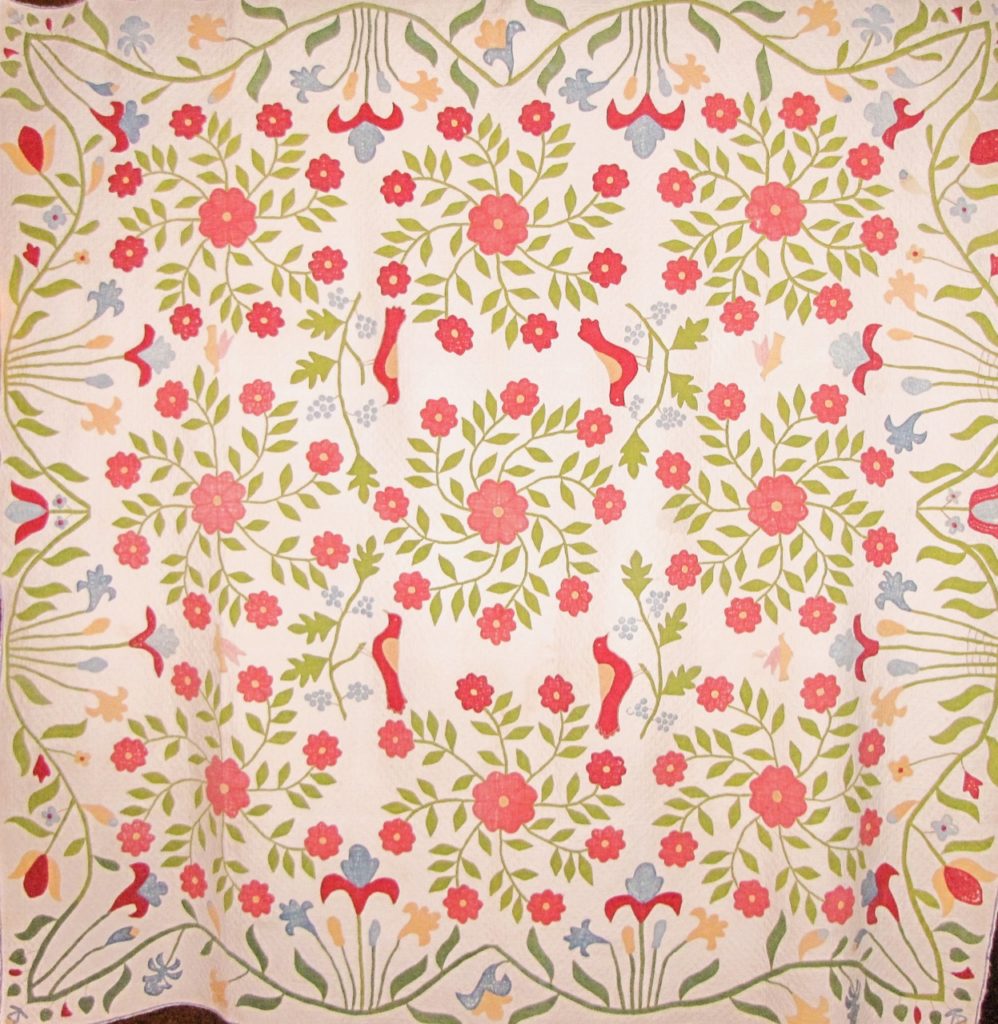
While not every AQSG members is a quilter, many are. In order to further their knowledge of quilt history, every other year those who are interested can sign up to stitch a quilt inspired by an antique or vintage quilt. The challenge is limited to 50 members and from those participants, 25 are selected to be part of a traveling exhibition. The new quilts are created within a broad category—say two-color quilts or quilts using solids. “These broad categories mean that a wide range of quilts are submitted,” says appraiser, lecturer, and AQSG member Sandra Starley. “When we did two-color quilts, we had quilts with a huge variety of styles from a range of time periods and from several different countries and the Hawaiian and Cook Islands.”
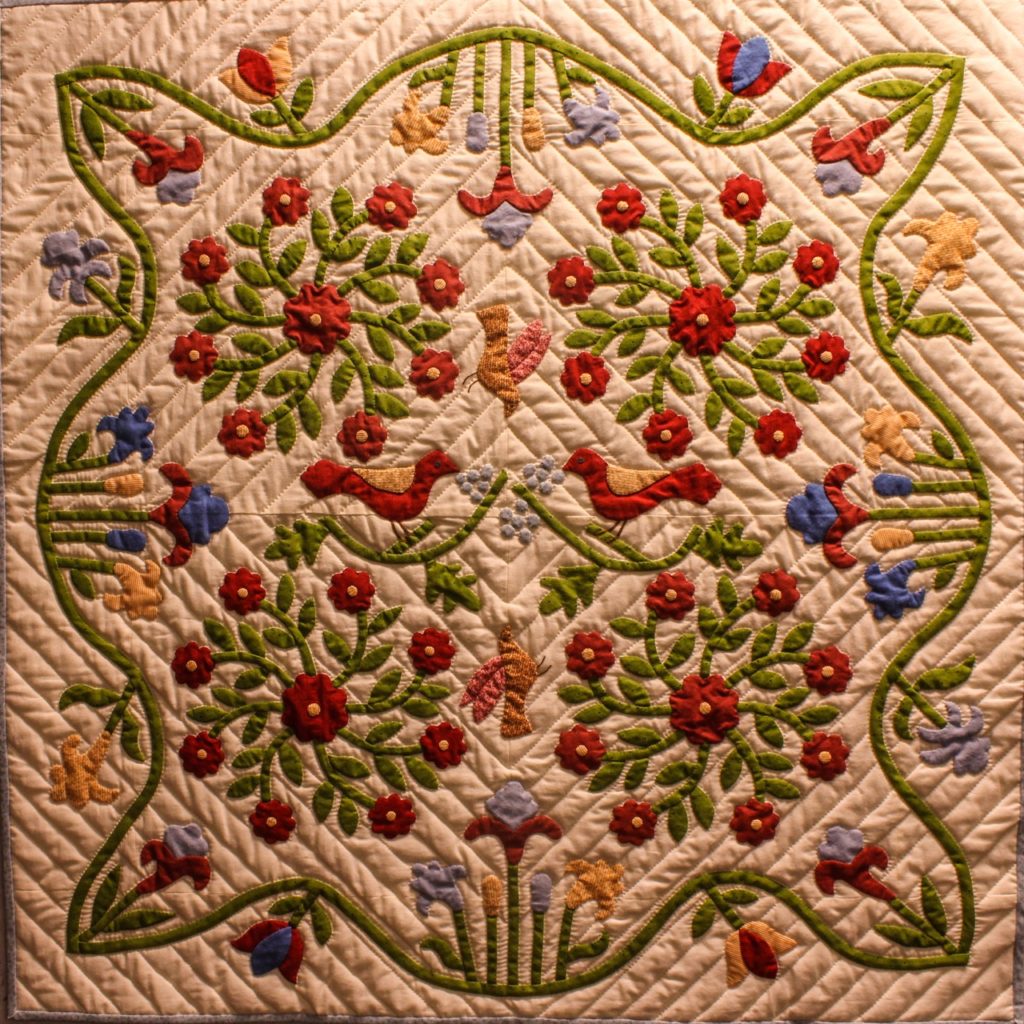
Once a quilter has chosen the antique quilt they want to sew that fits within that category—their inspiration quilt—they have to figure out how to make it. “That’s the interesting part,” says Sandra. “The size limit for the challenge is 42” and most inspiration quilts are bed-sized.” So participants must scale blocks down or create fewer blocks to meet the guidelines. “You also have to figure out how the original quiltmaker made her quilt and then decide if you’re going to take on the challenge of learning something you haven’t done before.”

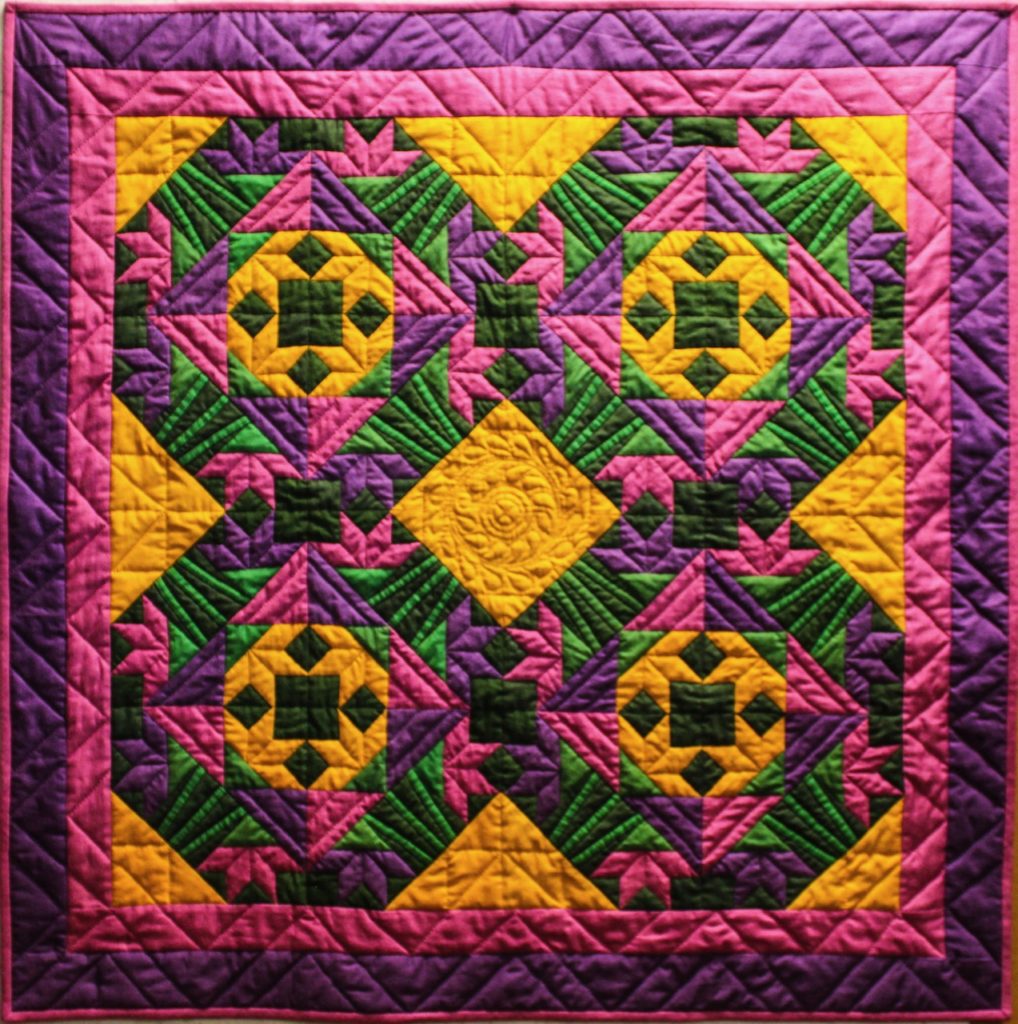
Sandra Starley
One of Sandra’s quilts involved English paper piecing. While she’s experienced at appliqué and foundation piecing, EPP was new to her. “I gave myself the extra challenge of learning a new technique,” she says.
Another consideration in recreating the inspiration quilt is whether to use traditional techniques or more modern ones. Sandra remembers that one of her quilts had a “kind of strange” hand-quilted pattern. She chose to recreate that in the center wreath of the quilt, while stitching in the ditch on the rest of the quilt. “The original was all done by hand, but then she probably wasn’t quilting on a deadline!” says Sandra.
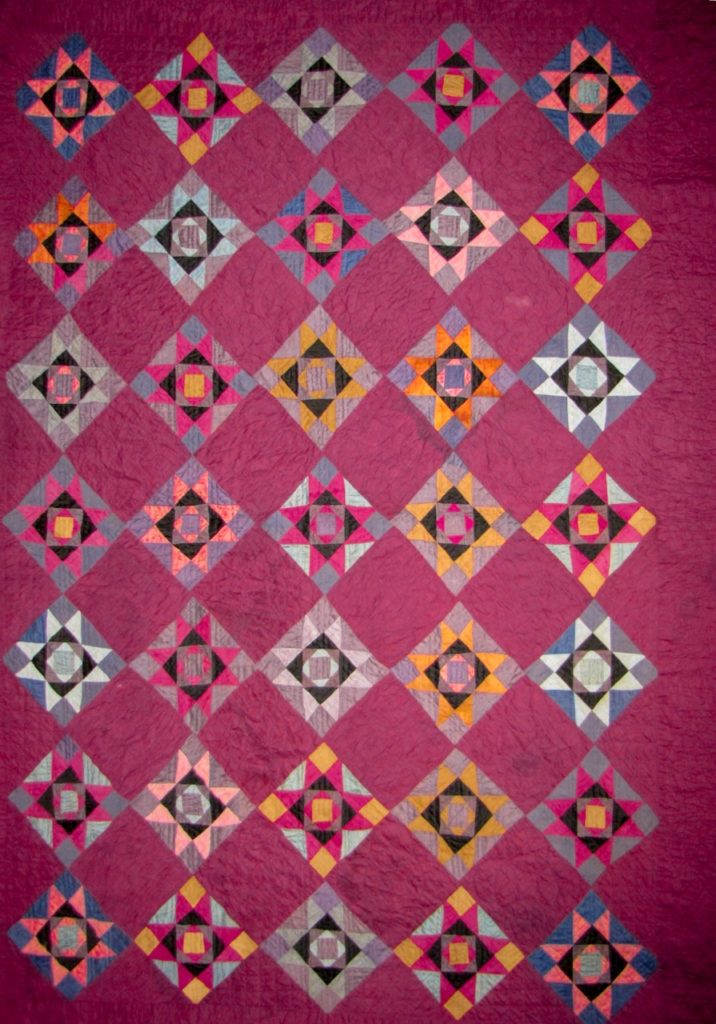
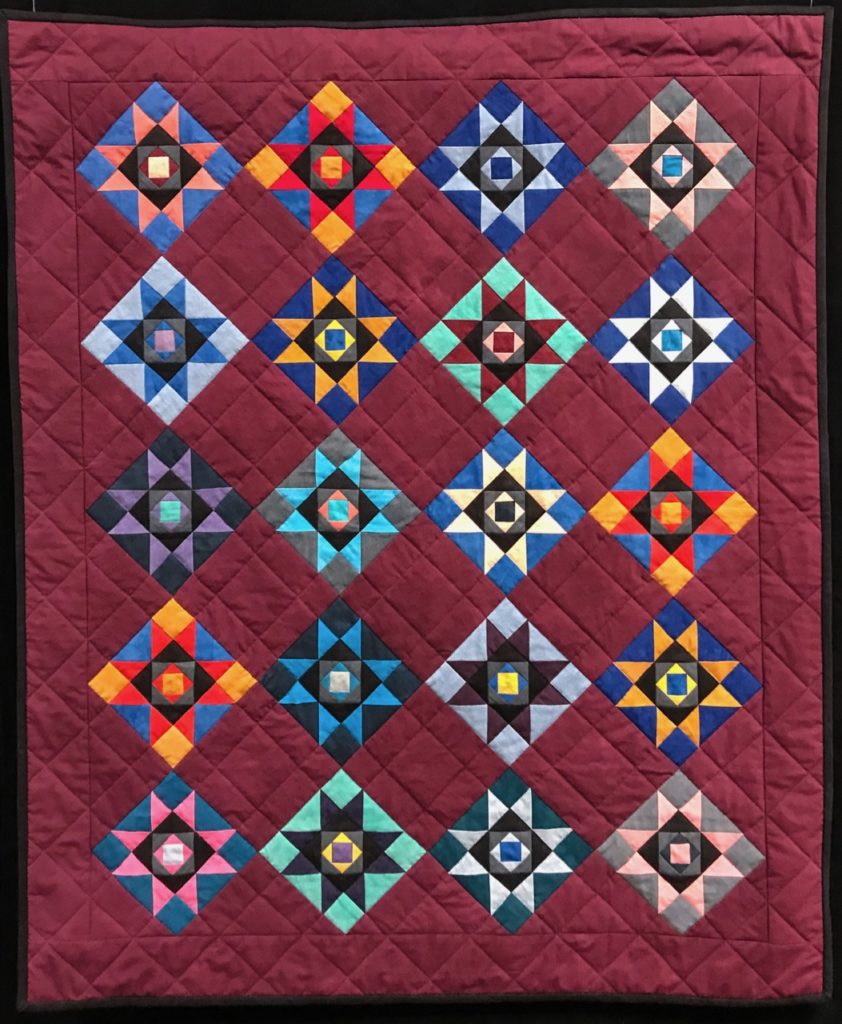
Each participant includes an artist’s statement with their quilt, delineating what they learned in the process. Along with new sewing techniques, quilters often discover unexpected facts about the history of their inspiration quilt. For example, one AQSG member was surprised to learn that the tobacco leaf appliqué on her inspiration quilt was created in Pennsylvania. Though tobacco is associated with the south, it turns out tha a number of young women worked in tobacco processing in Pennsylvania.
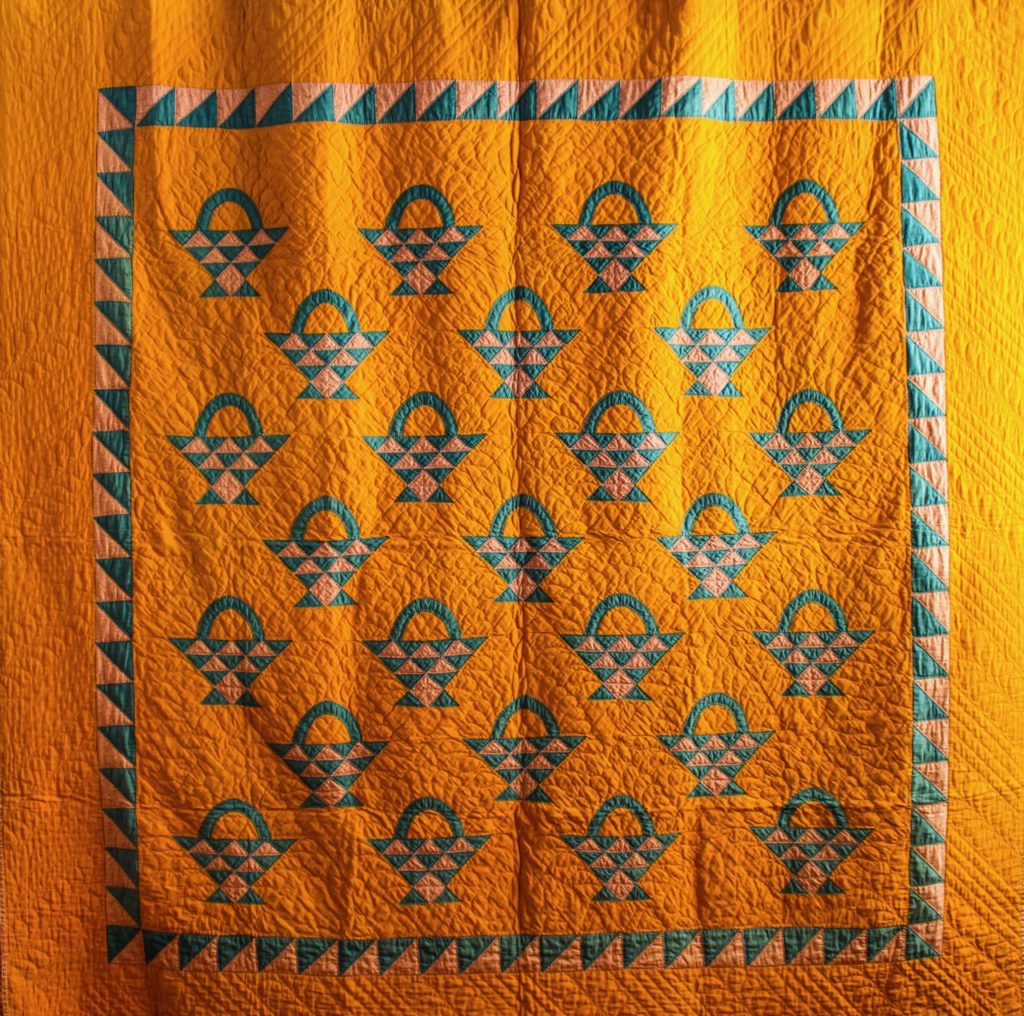
Sandra Starley Quilt Collection

“There are so many things you can learn from the past and bring to current quilting,” says Sandra. “And you can really enrich your quilting vocabulary and skills by looking to what was done in the past. There’s no better way to learn history than looking at quilts. It’s way more interesting than reading history books!”
To learn more about AQSG, to see more challenge quilts from the past, or to join AQSG visit their website.

Comments